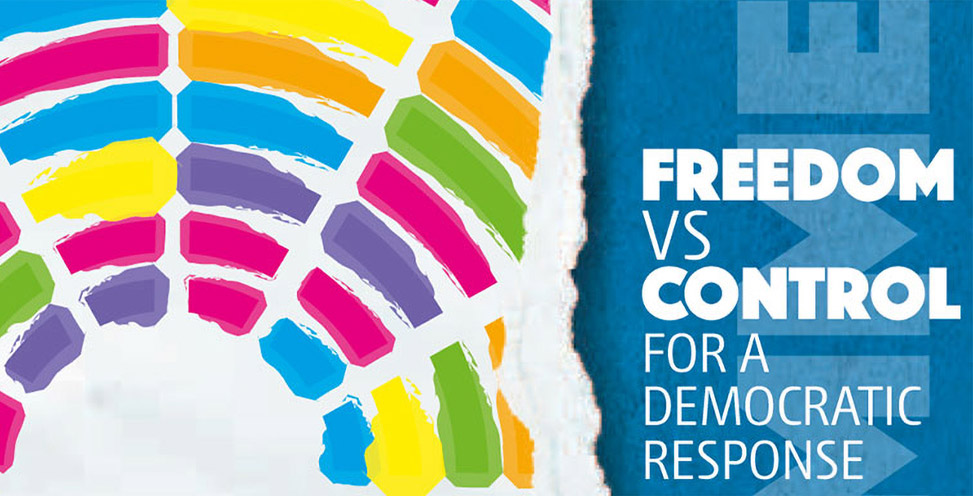World Forum for Democracy 2015 – “Freedom vs control: For a democratic response”

The 2015 edition of the World Forum for Democracy took place after the 13 November Paris attacks, highlighting the pertinence of the theme chosen and the urge to provide answers to the three sets of questions raised. A high turnout, discussions in multiple fora and the testing of initiatives in the labs, not only provided for rich reflection material, but also for a number of recommendations that can be addressed to national authorities, media, and local communities as well as to international organisations such as the Council of Europe.
The debates emphasised the need to check the cost‐effectiveness of surveillance, the risks of its encroaching into constitutionally guaranteed freedoms, its effects beyond national borders, the way in which it is managed and the central question of proper oversight – parliamentary, judiciary and financial. Even though the debate about surveillance is lively, whistle blowers are still few and no meaningful democratic control can be exercised by civil society. This is because the civil society is not equipped enough to assess the effectiveness of surveillance and its impact on freedoms. Calls for an enhanced civic engagement over surveillance issues can only be made in functioning democracies with sufficient cyber literacy levels.
Although fear can never be eradicated fully, it was assessed that the best antidotes against it were: keeping a high level of trust in democratic institutions – notably in the justice system – and avoiding the traps of singling out entire groups or geographical areas as dangerous or deviant. The diversity in our societies need to be managed by building “shared narratives” by integrating different approaches/stories that exist within local communities. Building resilience and trust could not come from the top-down. Grass roots, community-level work towards integration were seen as the first necessary step(s) towards changes in the orientations of political leadership.








